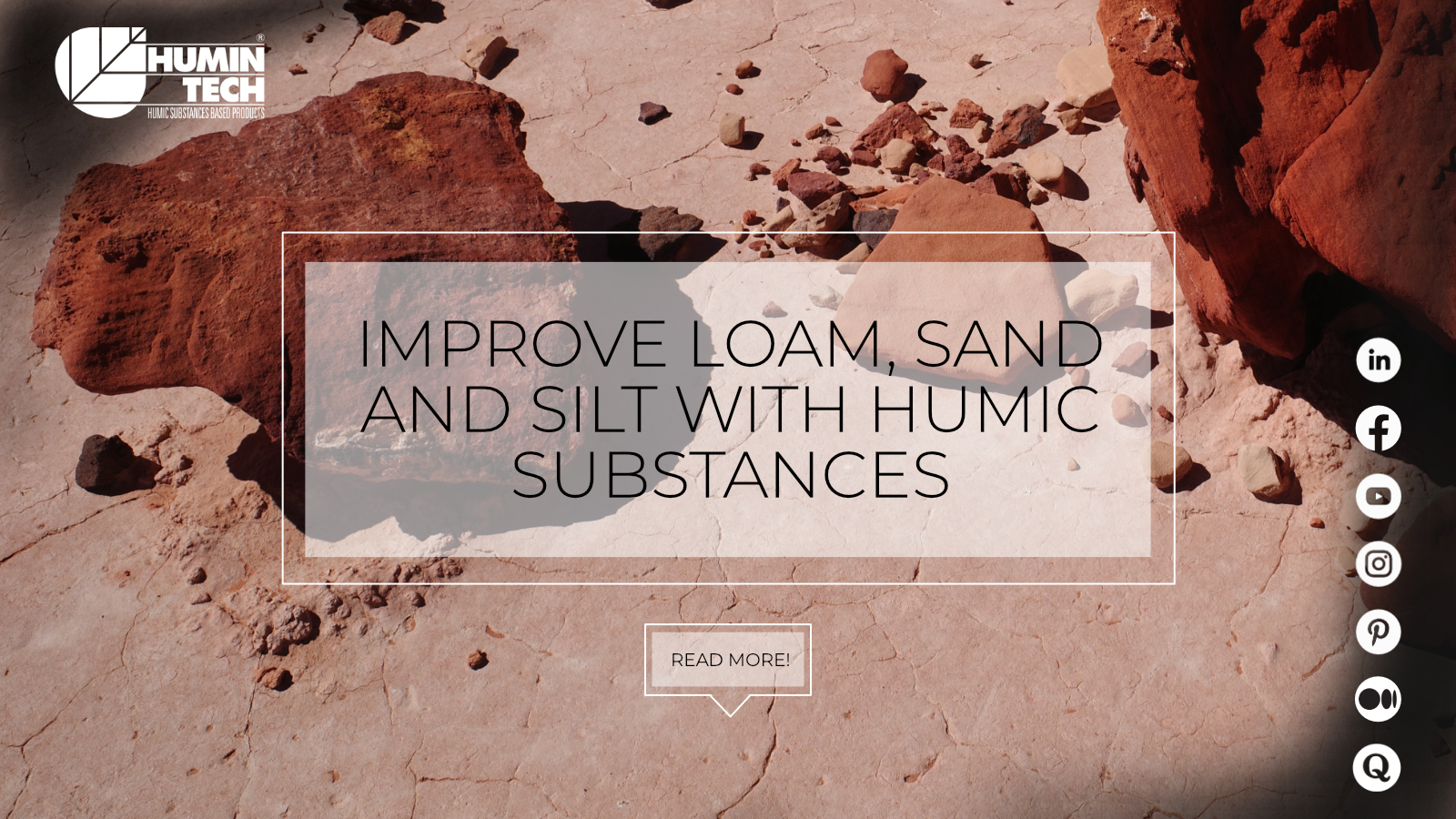How to improve loam silt sand soil with humic substances

What is the Difference Between Clay Soil and Sandy Soil?
Gardeners, homesteaders, and farmers alike can benefit from understanding the differences between clay soil and sandy soil. Knowing the properties of each type of soil can help you determine how to best use them on your land. In this blog post, we will discuss what clay and sandy soil are composed of, how they affect soil life, their nutrient availability and their water retention capacities. We will also discuss the difficulties and challenges associated with each type of soil and how to improve soil quality with humic substances.
Introduction
Clay soil is composed of very fine clay and silt particles that are usually formed from the weathering of rocks. Clay soils hold together in a compacted form, but when wet, they become very sticky and almost impossible to work with. Sandy soil, on the other hand, is composed of large particles of sand, silt, and clay. Sandy soils are much easier to work with compared to clay soils because they can be dug easily when dry and do not stick together when wet.
Soil Life and Nutrient Availability of Clay and Sandy Soil
The sand particles provide good drainage for water and air – hence they don't hold organic matter, nutrients or soil organisms very well. Since clay soils typically have more organic matter, they provide food and living conditions for a greater variety of organisms. Those organisms produce and deliver nutrients to plants. Clay soils also typically have a higher pH value than sandy soils.
Water Retention
Clay soils are able to hold onto way more water than sandy soils due to their small particle size. The small particles are able to form a dense structure that traps water within them. This feature can lead to a thin wet layer on your field while the root area is still dry and the airflow is interrupted. Sandy soils, on the other hand, do not have a dense structure so water passes through them quickly, making them less suitable for growing plants that require a lot of water.
Improving Soil Type
Improving either type of soil is possible by adding organic matter such as compost or manure. Adding organic matter will help create better drainage for both types of soil as well as provide necessary nutrients for plant growth. Adding sand or granulated volcanic stone helps to improve the structure of clay soils by breaking up the compacted particles and allowing air and water to move through them more easily. Adding lime to sandy soils raises the pH value which will improve nutrient availability. Mulching prevents wind erosion on sandy soils.
Humic Substances
Humic substances are naturally occurring compounds found in many soils that can help improve soil quality very quickly. Humic substances bind essential nutrients that plants need for growth such as nitrogen, phosphorus, potassium, trace minerals, and amino acids. They also help break down organic matter which releases more nutrients into the soil for plants to absorb. Adding humic substances to either clay or sandy soils can help improve their structure, nutrient availability, water retention properties and pH value for better plant growth in the long term.
Conclusion
Clay and sandy soils each have their own unique benefits and drawbacks when it comes to gardening or farming. Knowing their properties and how they differ from each other can help you determine which type of soil is best suited for your needs. Additionally, adding organic matter such as compost or manure as well as humic substances can help improve both types of soils by providing essential nutrients for plants to grow.

